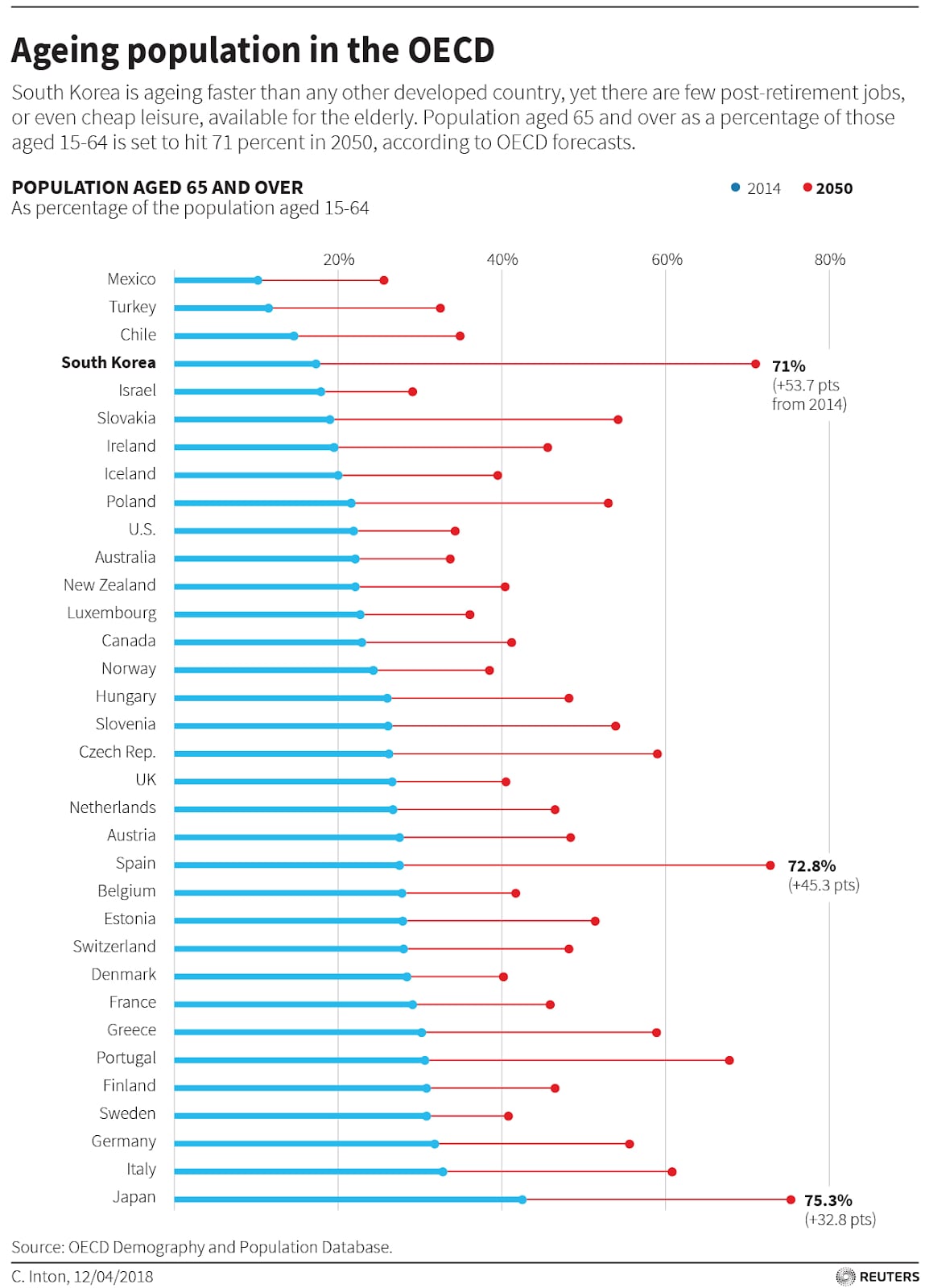What’s behind South Korea’s elderly crime wave?

Nearly half (48.6%) of Koreans aged 65 or over live in relative poverty. Image: REUTERS/Kim Hong-Ji
Elderly crime is on the rise in South Korea.
The number of crimes committed by senior citizens increased by 45% in the past five years, according to police and government statistics reported by the South Korean media.
While this is not a new phenomenon – according to the Korea Herald, elderly crime has been increasing for more than a decade – the latest figures reveal the number of serious crimes including murder, rape and robbery committed by older Koreans rose 70% between 2013 and 2017, and physical assaults were up by 43%. At the same time, the country experienced a fall in the overall crime rate.
The surge in senior offending coincides with soaring life expectancy. A 2017 study published in The Lancet projected that women born in South Korea in 2030 would be the first in the world to have an average life expectancy of above 90.
Experts have identified a number of potential overlapping causes for South Korea’s elderly crime wave, including an ageing population and rising poverty, social isolation and mental health issues among pensioners.
Nearly half (48.6%) of Koreans aged 65 or over live in relative poverty, according to data from the Organization for Economic Cooperation and Development (OECD), the highest level among the 34 OECD countries.
The suicide rate among the elderly increased from 35 per 100,000 in 2000 to 82 in 2010, well over the OECD average of 22.
A study from Sungkyunkwan University found about 25% of Koreans aged 65 and over ate every meal by themselves during the past year. And 21% have experienced depression, according to the Ministry of Health and Welfare.

Aged and super-aged societies
In 2017, South Korea officially became an “aged society”. It reached this milestone at a faster pace than any other developed country, and is predicted to become a “super-aged society” in 2026. The World Health Organization defines a society as “aged” when more than 14% of the population is 65 or over, and “super-aged” when it reaches more than 21%.
Japan, with a rate of 27%, has long passed these markers and is wrestling with the difficulties of caring for its enormous ageing population. In addition to the strain on the economy and healthcare system, these challenges include an elderly crime rate that has quadrupled over the past couple of decades.
In Japanese prisons, one out of every five inmates is a senior citizen. Half of the seniors caught shoplifting reported living alone, and 40% of them said they either don't have family or rarely speak to them. It has been reported that a significant number are even committing petty crimes so they can go to prison.
Against a backdrop of isolation, poverty and mental health issues, a trend of rising elderly crime might not be as surprising as it first appears – and may become a growing problem for ageing societies around the world.
Don't miss any update on this topic
Create a free account and access your personalized content collection with our latest publications and analyses.
License and Republishing
World Economic Forum articles may be republished in accordance with the Creative Commons Attribution-NonCommercial-NoDerivatives 4.0 International Public License, and in accordance with our Terms of Use.
The views expressed in this article are those of the author alone and not the World Economic Forum.
Stay up to date:
Justice and Law
Forum Stories newsletter
Bringing you weekly curated insights and analysis on the global issues that matter.
